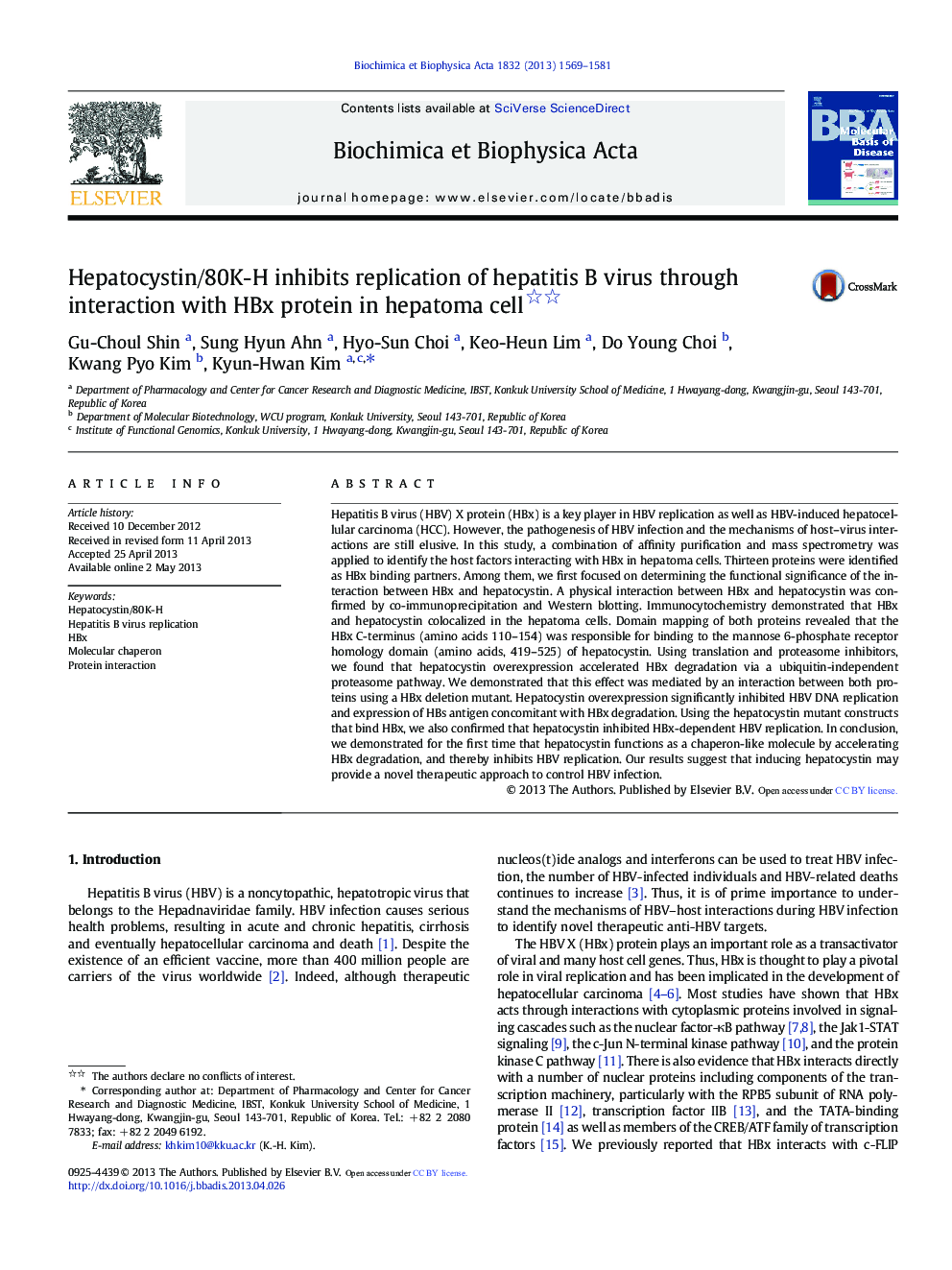| کد مقاله | کد نشریه | سال انتشار | مقاله انگلیسی | نسخه تمام متن |
|---|---|---|---|---|
| 1904789 | 1534667 | 2013 | 13 صفحه PDF | دانلود رایگان |

• Hepatocystin/80K-H interacted with HBx in the cytoplasm.
• Hepatocystin/80K-H accelerates HBx degradation via interaction between both proteins.
• Hepatocystin-induced destabilization of HBx results in the inhibition of HBx-dependent HBV replication.
• Inducing hepatocystin may provide a novel therapeutic approach to control HBV infection.
Hepatitis B virus (HBV) X protein (HBx) is a key player in HBV replication as well as HBV-induced hepatocellular carcinoma (HCC). However, the pathogenesis of HBV infection and the mechanisms of host–virus interactions are still elusive. In this study, a combination of affinity purification and mass spectrometry was applied to identify the host factors interacting with HBx in hepatoma cells. Thirteen proteins were identified as HBx binding partners. Among them, we first focused on determining the functional significance of the interaction between HBx and hepatocystin. A physical interaction between HBx and hepatocystin was confirmed by co-immunoprecipitation and Western blotting. Immunocytochemistry demonstrated that HBx and hepatocystin colocalized in the hepatoma cells. Domain mapping of both proteins revealed that the HBx C-terminus (amino acids 110–154) was responsible for binding to the mannose 6-phosphate receptor homology domain (amino acids, 419–525) of hepatocystin. Using translation and proteasome inhibitors, we found that hepatocystin overexpression accelerated HBx degradation via a ubiquitin-independent proteasome pathway. We demonstrated that this effect was mediated by an interaction between both proteins using a HBx deletion mutant. Hepatocystin overexpression significantly inhibited HBV DNA replication and expression of HBs antigen concomitant with HBx degradation. Using the hepatocystin mutant constructs that bind HBx, we also confirmed that hepatocystin inhibited HBx-dependent HBV replication. In conclusion, we demonstrated for the first time that hepatocystin functions as a chaperon-like molecule by accelerating HBx degradation, and thereby inhibits HBV replication. Our results suggest that inducing hepatocystin may provide a novel therapeutic approach to control HBV infection.
Journal: Biochimica et Biophysica Acta (BBA) - Molecular Basis of Disease - Volume 1832, Issue 10, October 2013, Pages 1569–1581